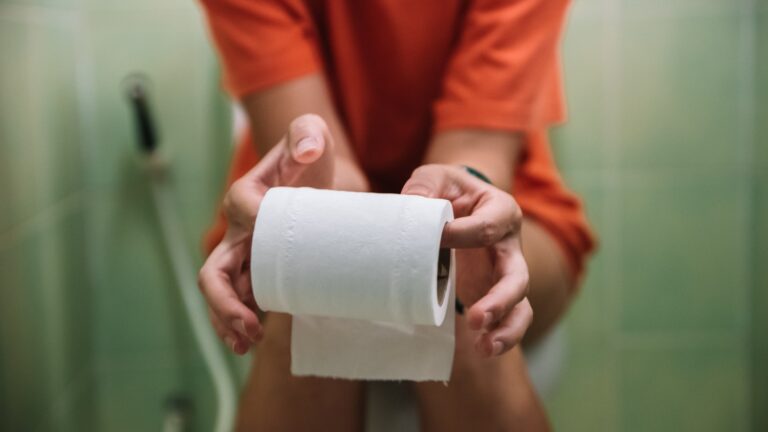ALTHOUGH it’s often a hush-hush topic, going to pee is something we all need to do.
After all, what we guzzle down, must come out.

2
But the stream doesn’t always run so smoothly down there and knowing what’s normal and what’s not, can help you work out when there is an issues.
It turns out spending too much time, or too little can be dangerous and a sign of hidden underlying health conditions, experts have warned.
It should only take you an around 21 seconds to completely empty your bladder, according to US researchers at the Georgia Institute of Technology.
And if you’re spending much longer peeing, you could be holding in urine for too long, which can lead to your bladder expanding too much.
Read more on toilet habits
This is because the average bladder holds between 400ml and 600ml, roughly one pint, and people typically need to pass urine four to eight times a day.
However, experts have warned that waiting until you’re bursting before going to the loo puts you at a higher risk of urinary tract infections (UTIs), which can lead to life-threatening kidney infections.
On the other hand, frequent short visits to the toilet may point to an overactive bladder, where the body feels an urgent need to urinate even when it is not full.
The 21-second rule, which researchers described as the “Law of Urination,” applies to all mammals weighing over 3kg.
The scientists behind the finding received an IG Nobel Prize in 2015, a satirical award that honours unusual or humorous scientific achievements, after analysing footage of various animals peeing.
But the health risks of ignoring the urge to go are anything but amusing.
Chris Blick, a consultant urological surgeon at the Princess Grace Hospital, said: “Generally speaking you shouldn’t force yourself to wait until you are desperate to urinate.
“Occasionally, this technique may be used as part of bladder retraining to support patients with overactive bladders.”
He told MailOnline: “Holding on too much can be painful and, if you have a urine infection, can make you feel unwell.
“If you regularly hold in your urine, over time this can cause your bladder to stretch.”
Peeing too often, he said, will “potentially train your bladder to empty when it doesn’t need to, and can create a habit leading to unwanted frequency of urination.”
Prostate cancer
Regularly feel the urge to pee but only pass a small amount, or finding it a strain to go, it could be a sign of an underlying enlarged prostate or, in some cases, prostate cancer.
Some symptoms may start to emerge when the cancer growth is big enough to put pressure on the urethra – that tube you pee through.
When this happens, some people may experience the following:
- Needing to urinate more often, especially at night
- Needing to rush to the toilet
- Difficulty in starting to pee
- Weak flow
- Straining and taking a long time while peeing
- Feeling that your bladder hasn’t emptied fully
If the disease has spread to other parts of the body – which is when it’s known as advanced or metastatic prostate cancer – it can cause several other symptoms, including:
If you suspect you might have prostate cancer or you are worried about your risk, speak to your GP.

2
When do you need to see a doctor?
Everyone has varying degrees of how long they can last before needing to urinate again.
But if you are concerned you have urinary incontinence – a very common problem- you should not feel embarrassed talking to them about your symptoms, the NHS says.
A new urgency to urinate frequently might also be a urinary tract infection.
Symptoms include:
- Needing to pee more often than usual during the night (nocturia)
- Needing to pee suddenly or more urgently than usual
- Needing to pee more often than usual
- Pain or a burning sensation when peeing (dysuria)
- Pee that looks cloudy
- Blood in your pee
- Lower tummy pain or pain in your back, just under the ribs
- A high temperature, or feeling hot and shivery
- A very low temperature below 36C


